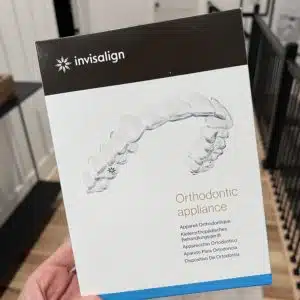Remember the first day you put money into your retirement account?
You have seen your retirement account grow over the years and you have been blessed because you have never had to tap into it.
Now the grandkids are your new focus and you have decided to just pass it on to them since you will never need it.

You have just turned 70 and a friend of yours in a similar situation is griping because they had to pay taxes on their retirement plan because they had to take money out.
Puzzled on the IRS rules you do some research (or go to my blog) and you learn about Required Minimum Distributions.
We’ll call them RMDs for short.
Table of Contents
It’s Time To Take Your Distributions
The beauty of investing in retirement plans is the tax-deferred growth. All these years you’ve seen your account grow but never had a 1099 you had to report any of those gains on.
You planned well enough that you have prolonged withdrawing even longer now, but you can only hold out for so long.
The IRS is chomping at the bit waiting to get some of that tax money back. They do so with RMDs by making you take out a portion of your retirement account each year and pay the respective tax on it.
If you don’t take it out, you get taxed 50% of the amount that you should have taken.
That’s a pretty stiff penalty that you want to avoid.
RMDs and 401(k)s
Typically, the same required minimum distribution rules apply to your 401(k) as your IRA. The big difference, however, is if you are still working until after you’ve reached 73.
In that case, the IRS allows you to postpone your RMDs until the day you retire. That’s a good scenario for those who haven’t saved enough and continue to work to boost their retirement savings.
When Do RMDs Have to Start?
The IRS says you must start by April 1 following the year that you turn 73, and you must do it each year. Some retirement plans will allow you to postpone withdrawing so long as you are still employed by that company.
Keep In Mind
RMD Example
Somebody born on July 1, 1945, would not turn 70.5 until January 1, 2016. That means that they would not have to take their first RMD until April 1, 2017 (which would satisfy the 2016 RMD requirement).
They would, however, be required to take another distribution that year by December 31, 2017, to satisfy for that year. Each year following would follow the December 31st deadline.
How Much Do You Have to Take?
The amount will also be based on the previous year’s balance in your retirement plan. For example, to figure your RMD for 2017 you would take the value of your plan as of December 31, 2016.
The amounts to be withdrawn are based on life expectancy tables issued by the IRS which factor in your age, your beneficiary’s age, and your relationship with your beneficiary.
Based on the 2016 Uniform Life Expectancy Table, you can expect to be required to withdraw 3.65% of your retirement plan when you turn 70.5. It then increases to 3.77% the next year and increases each year ongoing.
The IRS tables are named:
- Single Life Expectancy
- Joint Life and Last Survivor Expectancy
- Uniform Lifetime
The tables are helpful, but nowadays calculators are used to compute the amount with ease. Please seek guidance from a financial professional to ensure that you are taking your RMDs correctly.
Do You Have to Calculate RMDs on Your Own?
Luckily, no. Most financial institutions will calculate the figure for you. For all my clients that have reached RMD age, my custodian calculates the RMD amount for my clients and then I contact the client to notify them of the amount.
Another thing to consider is that since it is a taxable distribution, your IRA custodian will most likely require you to sign a form to take out the money (at least the first time). If a form needs to be signed, don’t procrastinate and wait till the last minute.
What About RMDs and Roth IRA Conversions?
With the rules regarding Roth IRA conversions now lifted, I’ve had several RMD candidates inquire about converting their RMDs directly into a Roth IRA.
While the concept sounds good, it’s not allowed. The IRS will make you pay tax and remove the RMD proceeds. Anything left after the RMD can be converted into a Roth IRA – just remember you’ll have to pay the appropriate tax.
Bottom Line: RMD Rules for IRA and 401k’s
Required Minimum Distributions (RMDs) are mandatory withdrawals from retirement accounts once you reach 73 years old, ensuring the IRS can reclaim some deferred taxes. If not taken, there’s a hefty 50% penalty on the amount you should’ve withdrawn.
The amount is based on IRS life expectancy tables and varies each year. While financial institutions typically calculate this for you, it’s crucial to be proactive in ensuring withdrawals are timely.
Direct RMD conversions to Roth IRAs aren’t permitted, but post-RMD amounts can be converted, with taxes applicable.








I am becoming 70.5 years old this year. I have a 401k account from my current employer. Do I need to notify IRS that I am still working or they will know my situation?
Hi Ahmet – I don’t think so, since you’re still employed with the company that also holds the plan. The plan administrator should take care of this. But if you get a letter from the IRS, you can just show that you’re still employed with a copy of a recent paystub and your latest W2.
I have heard you can leave your rmd in your 401(k) if you just pay the tax on the rmd. Is it true?
@james I’ve never heard of this in all my years of being an advisor.
I’m turning 70 in December and working. Is it mandatory to start distribution from 401k or not till I stop working?
Hi Edward – You’re generally supposed to begin taking RMDs at age 70.5. But I believe there is an exception if you are still working for the plan sponsor. Now if you have 401(k) plans from previous employers, you must begin taking distributions from those. The exception doesn’t apply to non-active employers.
[ HAVE 2IRA ACT & 2 ROTH IRA ,SO I CAN PAY RMD TOTAL FROM ONE ACT BEFORE 70.5 +1ST APRIL NEXT YEAR.
Be careful Mahesh – If you have multiple accounts, the RMDs must come from each account. You can’t do a distribution from one account to cover them all.
I have a 401 retirement fund and a IRA account
I’am required to take and RMD this year
Can add the total of both accounts together and withdraw that total from one account ?
Hi Perry – I believe that since they are separate plans, each has to calculate – and distribute – a separate RMD. If you want it to come out of one account then you may want to consider rolling the 401k over into your IRA. But make sure you aren’t giving up any benefits from the 401k before you make the move.
Jeff, Thanks for your answer
This will put me in a situation that will cost me money
My 401 has no management fees, moving it into my IRA will incur a management fee